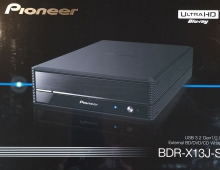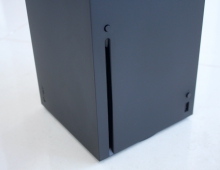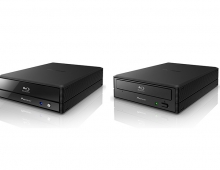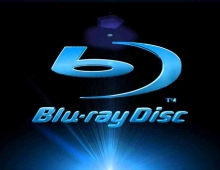
AACS LA Adopts Macrovision's Analog Hole Content Protection
Macrovision's analog content protection technology (ACP) has been included as a requirement in the specification for the content protection technology for Blu-ray and HD DVD by AACS LA.
With this agreement, Macrovision's ACP will be included in the latest AACS LA protection specification release, the Advanced Access Content System, which manages content stored on the next generation of prerecorded and recordable optical media for consumer use with PCs and CE devices. Macrovision's ACP solution offers content protection on next-generation optical discs from analog piracy.
"Macrovision's ACP enables content providers, content aggregators, and device manufacturers to provide quality content for their consumers as next-generation technology such as HDTV gain market adoption," said Michael B. Ayers, spokesperson for AACS LA.
Macrovision's ACP is a device-to-device analog content protection system, protecting over 4.5 billion DVDs for Hollywood and other rights owners since the format's introduction. Macrovision ACP closes the "analog hole" on nearly every DVD player, DVD recorder, PC, and digital video recorder.
The analog hole is the result of consumers making high-quality copies of original DVD content from the analog outputs of their DVD player, DVD recorder, or PC. All that is needed is a single, simple video cable and the press of a button. The video quality of the resulting DVD copy is hard to distinguish from the original.
Macrovision ACP prevents or distorts copies of DVDs made over an analog interface to DVD recorders, PCs, digital video recorders (like TiVo, ReplayTV and Media Center PCs), in addition to D-VHS recorders (DVRs) and VCRs.
ACP technology is activated when a rights owner instructs the authoring facility to set Macrovision analog content protection control bits during the authoring process. The activation bits instruct an integrated circuit within the playback device to add ACP to the outgoing analog video. The content protection is transparent when content is viewed, but prevents or substantially degrades copies made on DVD recorders, DVRs, PCs, Media Center PCs, D-VHS recorders and VCRs. The DVD application process for ACP can be transparently combined at the replication facility, regardless of the type of manufacturing systems used. Macrovision's ACP technology must be licensed, but IC and DVD hardware manufacturers do not have to pay royalties.
"Macrovision's ACP enables content providers, content aggregators, and device manufacturers to provide quality content for their consumers as next-generation technology such as HDTV gain market adoption," said Michael B. Ayers, spokesperson for AACS LA.
Macrovision's ACP is a device-to-device analog content protection system, protecting over 4.5 billion DVDs for Hollywood and other rights owners since the format's introduction. Macrovision ACP closes the "analog hole" on nearly every DVD player, DVD recorder, PC, and digital video recorder.
The analog hole is the result of consumers making high-quality copies of original DVD content from the analog outputs of their DVD player, DVD recorder, or PC. All that is needed is a single, simple video cable and the press of a button. The video quality of the resulting DVD copy is hard to distinguish from the original.
Macrovision ACP prevents or distorts copies of DVDs made over an analog interface to DVD recorders, PCs, digital video recorders (like TiVo, ReplayTV and Media Center PCs), in addition to D-VHS recorders (DVRs) and VCRs.
ACP technology is activated when a rights owner instructs the authoring facility to set Macrovision analog content protection control bits during the authoring process. The activation bits instruct an integrated circuit within the playback device to add ACP to the outgoing analog video. The content protection is transparent when content is viewed, but prevents or substantially degrades copies made on DVD recorders, DVRs, PCs, Media Center PCs, D-VHS recorders and VCRs. The DVD application process for ACP can be transparently combined at the replication facility, regardless of the type of manufacturing systems used. Macrovision's ACP technology must be licensed, but IC and DVD hardware manufacturers do not have to pay royalties.





















